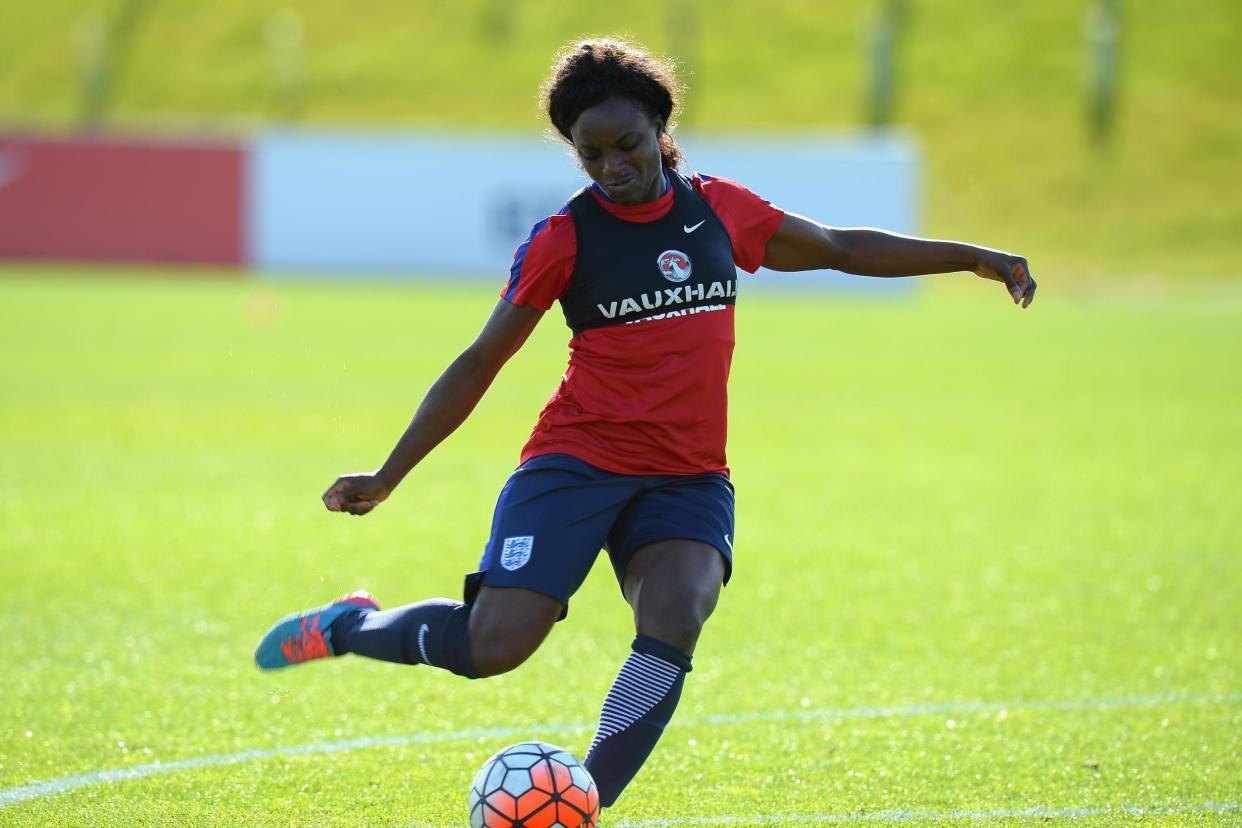FA must act now to resolve Eni Aluko racism case - and football wants answers

The sad irony in Eni Aluko’s battle with the FA is that both sides started off by trying to do the right thing.
Technical director Dan Ashworth wrote to Aluko in May, 2016, inviting her to take part in what was termed a “culture review”, asking for a frank assessment of the environment around the England women’s team. Aluko’s status, in Ashworth’s words, as an “iconic player” meant her opinion was highly valued, with confidentiality assured.
It is, as yet, unclear what triggered Ashworth to instigate the review, but nobody at the FA was prepared for Aluko’s submission. Her report included a range of accusations, including allegations of bullying and discrimination by manager Mark Sampson and an unnamed mixed-race player being subjected to racially-charged remarks in a team meeting at the China Cup in 2015.
Those allegations prompted the FA to launch an independent report, led by Katharine Newton QC. This separate inquiry lasted months - and here is where things get complicated.
Aluko claims to have declined to participate because she believed her evidence in the culture review was dismissed too readily, alleging it reached its conclusions that there was no case to answer before contacting any of her witnesses or the unnamed mixed-race player. “After that, I couldn’t take the [second] investigation seriously if they couldn’t even be bothered to speak to key witnesses,” Aluko told the Guardian.
It is, therefore, highly likely that her case was weakened by failing to give evidence to Newton during her three-month investigation, however disillusioned she already felt.
Now the two sides begin to become further entrenched. The FA and Sampson have strongly denied any accusations of racial abuse. The FA also maintain that not one of Aluko’s allegations have been substantiated, the inquiry clearing the FA and Sampson of any wrongdoing.
Aluko believes it to be effectively a whitewash and lodged a claim for an employment tribunal. She subsequently received a financial settlement, described by the FA as a payment to avoid disruption to England’s Euro 2017 campaign but by others as ‘hush money’, so the matter was kept private.
Aluko maintains she was not allowed to discuss the case until the facts became public and not in a way that brought the FA into disrepute. The FA are believed to have been categorical that Aluko was free to talk about the facts of the case aside from any financial details of the settlement.

The fact there was a settlement inevitably arouses suspicion, as do her claims about her subsequent treatment. A week after submitting evidence to the culture review, Aluko was dropped. The FA say the timing was coincidental. The unnamed player has also not featured since.
Aluko’s sense of persecution was reinforced further by the launch of an investigation into her work as a sports lawyer. The independent review found that the timing of this further investigation was “unfortunate” but that it was not “in any way a retaliatory act” or related to race.
Aluko’s absence from the Euro 2017 squad appeared odd in a football context. The 30-year-old, who has 102 caps, finished last season’s Women Super League 1 with Chelsea as top goalscorer. Yet the last two WSL 1 top-scorers, Bethany Mead and Natasha Dowie, were also left out and all five of the strikers Sampson selected scored in the Finals. Furthermore, the unnamed player was relatively inexperienced at international level when the alleged incident took place and, therefore, her subsequent omission is not necessarily an atypical occurrence.
Amid claim and counter claim, one point emerges: an environment must prevail whereby players believing they are suffering from discrimination are encouraged to come forward and, equally significant, believe they will be given a fair hearing. This environment cannot exist if the perception is allowed to remain that the independent inquiry was not comprehensive.
Aluko is unswerving in her belief she is a victim but took to Twitter to express her desire to “move on”. The FA remain supportive of Sampson, who released a statement citing a need to improve his communication, and privately believe they have done all they can.
But the wider game wants answers.
I have kept my counsel but after my honesty I hope this difficult case will now be clear after your reading. I'd like to move on. https://t.co/I7w2HQqx4T
— Eniola Aluko (@EniAlu) August 21, 2017
One of two things needs to happen. Either the FA should publish the findings of their culture review (last night they told this column it was completed but remains confidential to protect players) or a fresh investigation must take place, whereby anyone affected must come forward with all evidence heard to clear this fog of confusion.
The FA insist they will investigate any allegations and Aluko continues to feel slighted. Of course, that’s how this all started.

 Yahoo News
Yahoo News 
